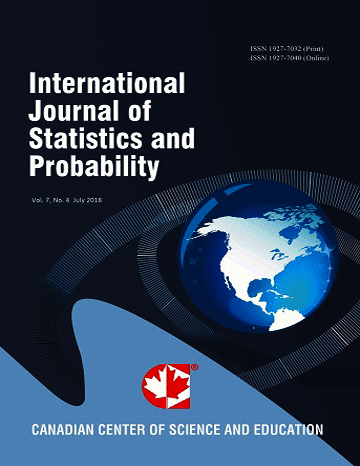Variable Selection Methods Based on Pseudo-observations in Competing Risks Analysis
- Fumihiro Tajima
- Kenichi Hayashi
Abstract
Competing risks analysis based on the pseudo-observations has been applied to medical studies in recent years. The analysis allows the direct evaluation of the effect of covariates on the cause-specific cumulative incidence function (CIF) using an estimating equation. In a case with a large the number of covariates, variable selection (selecting the covariates that affect the outcome variables) is critical. However, there are few studies addressing the problem of variable selection for the pseudo-observations technique. In this study, we propose two variable selection methods based on pseudo-observations. One is a method based on a criterion derived by an estimator of an expected pseudo quasi-likelihood. The other is a penalized estimating equation, inducing a sparse estimates for model parameters. The estimator given by the penalized estimating equation has so-called oracle properties under some appropriate penalty functions. When applying such a penalization method, it is essential to choose an optimal tuning parameter that determines the magnitude of the penalty. Then, we construct a BIC-type criterion for the ordinary penalized least squares and show it can consistently identify the true set of covariates as the sample size grows. Simulation studies show the performance of the proposed two variable selection methods.
- Full Text:
 PDF
PDF
- DOI:10.5539/ijsp.v14n2p37
Index
- ACNP
- Aerospace Database
- BASE (Bielefeld Academic Search Engine)
- CNKI Scholar
- DTU Library
- Elektronische Zeitschriftenbibliothek (EZB)
- EuroPub Database
- Excellence in Research for Australia (ERA)
- Google Scholar
- Harvard Library
- Infotrieve
- JournalTOCs
- Mir@bel
- Open policy finder
- ResearchGate
- Technische Informationsbibliothek (TIB)
- UCR Library
- WorldCat
Contact
- Wendy SmithEditorial Assistant
- ijsp@ccsenet.org
